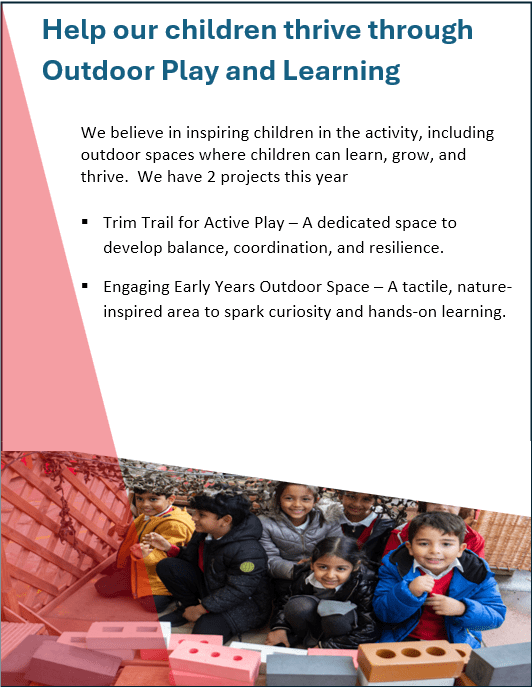Curriculum Intent:
To ignite a passion for maths, which builds upon prior knowledge and allows children to apply their learning to real-life situations, enabling them to develop a broader understanding of the importance of maths within the world. To ensure that every child can succeed and have the confidence to challenge and develop curiosity.
Maths at Kestrel Mead:
At Kestrel Mead, we believe that all children can be successful in mathematics, which is why we employ a ‘no ceilings’ approach. In order to support all children to achieve, we use a mixture of concrete, pictorial and abstract representations to both aid and challenge children. Lessons are based on the mastery approach to mathematics and children have the opportunity to complete fluency, reasoning and problem-solving challenges within their lessons.
We believe that developing a real-life understanding of mathematics is vital to not only securing understanding but also giving purpose to learning. To this end, we incorporate a variety of practical lessons, which combine problem-solving and role play opportunities.
In EYFS and Year 1, mathematics is woven throughout continuous provision, with a specific focus being placed on developing curiosity in order to begin to secure a wider understanding and to create cross-curricular links. Rather than there being one specific maths area, children will be exposed to opportunities for maths across every area in continuous provision, including: outdoor provision, construction and role play. In addition to this, there will be specific maths challenges for children to complete independently throughout the week.
In Year 2-6, we take a more formal approach to learning, but build in opportunities to work practically in order to secure and further mathematical understanding.
EYFS Curriculum:
The early learning goals (ELG) for the early years maths curriculum are centred around number and numerical patterns. There are both specifically taught maths lessons each day, which is combined with learning through continuous provision. This allows the children to learn through play and exploration but also allows children to make links within other areas of the curriculum and to real-life experiences. Children will specifically learn about shape, space and measure throughout the continuous provision area.
Number:
Children will develop a deep understanding of numbers to ten, creating solid foundations for learning in year 1. They will develop the ability to subitise to five as well as learning number bonds to five and begin work on understanding number bonds to 10.
Numerical Patterns:
Children will develop the ability to count to 20 and beyond, building up a recognition of our number system as they do. They will also explore numbers and compare quantities up to ten, increasing their understanding of what the number means.
At Kestrel Mead, early years classes follow the White Rose Maths curriculum, which focuses on the ELGs, whilst also creating links between the wider aspects of maths, such as shape, space and measure. The children are provided with a wide range of manipulatives, in varying contexts to support and enhance their understanding.
Children are encouraged to use their understanding of maths to verbally explain their answers further in order to begin to develop their reasoning skills.
Structure of lessons in KS1 and KS2:
In KS1, teachers will alternate chalk, no talk and flying fluency on a weekly basis. Lessons will last approximately 30 minutes in year 1, with independent #MrStretch challenges being available for children to complete in continuous provision. Each week, children are given the opportunity to answer fluency, reasoning and problem-solving questions in a practical way, with probing questioning being used alongside this.
In Year 2 lessons last approximately 45 minutes, with independent #MrStretch challenges being part of the lesson. Each week, children are given the opportunity to answer fluency, reasoning and problem-solving questions in a practical way, with probing questioning being used alongside this.
Numbots and Times Table Rockstars are alternated on a weekly basis for fluency and times table practise. Numberblocks should be planned weekly to improve number sense.
In KS2, lessons will last for 1 hour. Teachers will prepare a chalk, no talk activity as well as a flying fluency task to aid retrieval. The chalk, no talk activity is designed to teach children how to reason in maths, during which time, probing questions should be used. The flying fluency activity is designed to practise methods, revisit concepts and create links between different areas of maths. The two activities should last no longer than 15 minutes.
Quadrant grids are used for the majority of lessons in KS2. These enable children to work their way through varied fluency (red and yellow tasks), reasoning (green task) and problem-solving (blue task). Depending on the confidence of the children, they may choose to start on the red task (if they are feeling unconfident), the yellow task (if they are feeling moderately confident) or green (if they are feeling extremely confident). Giving the children the chance to choose their starting point not only gives them ownership of the learning but also promotes independence and confidence. A #MrStretch challenge must also be available for children to work on after they have completed their quadrant (purple task).
Each topic in maths should incorporate a mixture of formal, written lessons using the quadrant grids as well as practical, investigative lessons in order to apply their learning.
Manipulatives should be available in all lessons to both support and challenge students.
Times Table Rockstars should be used to increase speed of recall of known multiplication facts. Times Table Rockstars forms one step in the teaching of multiplication tables.
Manipulatives:
Manipulatives are the tools to help children to solve problems. They support children in their understanding, however children cannot learn from them alone. They encourage visualisation, which supports the shift to abstract reasoning with symbols.
Manipulatives such as counting objects and Cuisenaire rods can be given different values to support children in KS2.
Children must develop a concrete understanding of new concepts before they are able to apply their understanding to pictorial and abstract representations. This is a stage that should not be rushed and the manipulatives should still be available for children to use, even if they have moved on to solving problems in an abstract form.
More able children can be challenged by using manipulatives for proving or generalising, which also boosts creativity in maths. #ProveIt can be used to stretch children further.
Raising aspirations and making links within the curriculum:
STEM stands for Science, Technology, Engineering and Mathematics. Through making links to other STEM subjects, connections can be made with various mathematical areas. Purpose will be given to maths, which not only raises the engagement for pupils but will also develop a real-life understanding. Children make not recognise the links between maths and other subjects unless they are explicit for example, children may not see the connection with cooking and fractions, measurements, operations and ratio and proportion. This is a way for children to apply their class-based learning.
In addition to allowing children to make cross-curricular links, children will also understand the value of maths in different occupations. Primary Futures is a good way for children to understand how maths plays a role in different jobs as children will be able to hear first-hand the importance of the subject.
How can parents help their children at home?
Encouraging your child to use Times Table Rock Stars at home (www.ttrockstars.com) is an excellent way of increasing the speed of recall of times table facts. However, this is just one way of learning times tables. Playing games, using times table songs and reciting times tables will also help your child to learn their multiplication facts. Encouraging your child to use Numbots if they are in KS1.
Encourage your child to use maths outside of school e.g. ask them to count out the correct change to pay for something in a shop, using rulers to measure at home and measuring ingredients whilst cooking.
You could also ask your child to explain their learning at the end of the day and ask them to teach you their new learning.
The calculation policies for each year group are available to help you to support your child using the methods we use in school.
Spotlight
Trips and Enrichments
Useful Websites
Subject Champion/s
Miss A McKee & Mr C Wisson
Subject Leader/s
Miss N Hall




















































